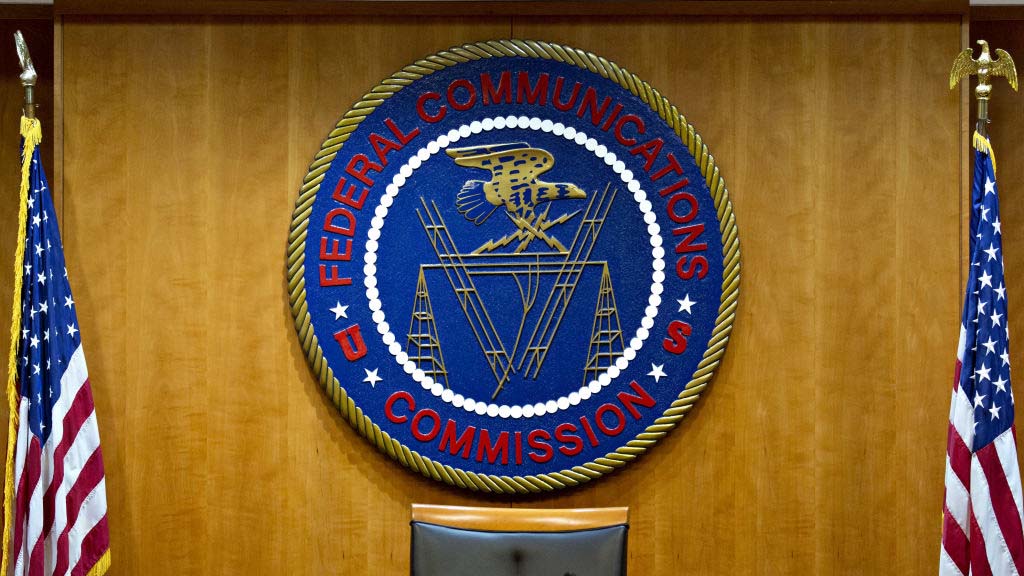FCC’s Net Neutrality Docket Bulges With Initial Deadline Input
Dec. 14 marks first milepost on road to return of net neutrality rules

The smarter way to stay on top of the multichannel video marketplace. Sign up below.
You are now subscribed
Your newsletter sign-up was successful
Already the Federal Communications Commission’s busiest docket, the effort to restore network neutrality rules saw a rush of new comments Thursday (December 14), the deadline for initial submissions by interested parties looking to affect the outcome of the proceeding.
Replies to those comments are due January 17, after which the FCC can schedule a vote on a final rulemaking.
The FCC's Democratic majority supports restoring the rules by reclassifying internet access as a Title II telecommunications service subject to FCC regulation as a common carrier. With three out of five votes for restoring the rules, they are likely to return in the new year after the regulator has collected public input on the proposed rulemaking.
NCTA: The Internet & Television Association was mincing no words in its opposition. “[A] bare majority of FCC Commissioners are proposing, for no reason other than partisan politics, to impose the most intrusive and overbearing regulatory framework on one of the most dynamic technologies in the history of communications — the internet,” the group representing larger cable MSOs said. “The specious and ever-changing rationalizations asserted by the FCC defy marketplace reality and suggest an agency more committed to expanding its own regulatory power than to supporting the continued growth of a competitive marketplace that is delivering fast, open and innovative services to more Americans than ever before.”
The U.S. Chamber of Commerce says the reclassifiation should be a nonstarter. “Title II reclassification will accomplish one thing — increasing the FCC’s control over the Internet,” the chamber said, a move that would be “unlawful and unwise.” It advises against adopting “a vague standard that provides no guidance as to what constitutes compliance, but provides license to the FCC to adopt controversial and anti-consumer rules and enforcement policies.”
In a blog post illustrated by a familiar evil clown/devil, USTelecom president and CEO Jonathan Spalter likened the FCC proposal to “a casting call for the upcoming streaming prequel to Stephen King’s It, serving up Pennywise [King’s shape-shifting monster clown] and a veritable who’s who of modern-day monsters lurking under the bed.”
Spalter said the FCC’s suggestion that the reclassification is needed to “save the internet” is disconnected from the reality that the internet has flourished under the light touch of a Title I information services definition of internet access.
WISPA, which represents fixed wireless internet service providers, said reclassification would hurt small internet service providers and their communities.
“When looked at in combination with other regulatory mandates Congress has applied to broadband providers since 2021, [reclassification] will undercut the Biden administration’s efforts to invest billions of taxpayer dollars to deploy broadband service to unserved and underserved Americans. Imposing burdensome, ‘one-size-fits-all’ regulations on smaller broadband providers is the very antithesis of promoting investment, innovation, competition and lower costs to consumers,” WISPA said.
“The commission’s proposal to convert broadband internet networks into public utilities is legally unsupportable as well as unwise, unnecessary and unjustified from a policy perspective,” Randolph May, president of free market-oriented think tank the Free State Foundation, told the FCC. “Stated bluntly, the Commission’s proposal, if adopted, by asserting stringent bureaucratic control over the practices and operations of private sector Internet service providers, would constitute one of the 21st century’s most flagrant government power grabs.”
On the other side, INCOMPAS, which represents competitive carriers and some high-profile edge providers, said the FCC should definitely reclassify internet access as a telecommunications service and reinstitute net neutrality rules “to ensure that residential and small business customers throughout the United States have access to an open internet so that they can access the lawful online content, applications, and services of their choice.”
The Computer & Communications Industry Association, whose members include the biggest of Big Tech, urged the FCC to restore the rules against “blocking, throttling, paid prioritization and unreasonable conduct.”
The “unreasonable conduct” reference is to one of the rules the FCC would restore, a vague, catch-all category that would allow the FCC to regulate unspecified conduct if it concluded it impeded an open internet. It is arguably the rule ISPs fear most, since they have supported non-Title II-based rules preventing blocking, throttling and anticompetitive paid prioritization.
And ISPs say that if the FCC does reclassify internet access as a utility-style service, it should preempt states and localities from doing their own regulating of the internet.
Not surprisingly, the National Association of State Utility Consumer Advocates argues the opposite. “[T]he FCC should assure that states, including state regulatory commissions and NASUCA members have latitude to advance state interests such as public safety and continuity of service and consumer protection for telecommunications services and providers,” NASUCA said.
The smarter way to stay on top of the multichannel video marketplace. Sign up below.
Contributing editor John Eggerton has been an editor and/or writer on media regulation, legislation and policy for over four decades, including covering the FCC, FTC, Congress, the major media trade associations, and the federal courts. In addition to Multichannel News and Broadcasting + Cable, his work has appeared in Radio World, TV Technology, TV Fax, This Week in Consumer Electronics, Variety and the Encyclopedia Britannica.

